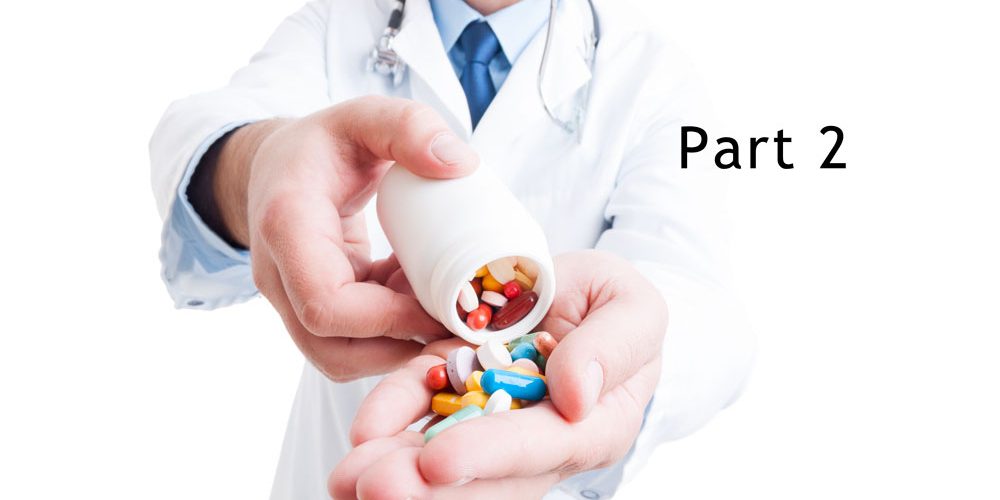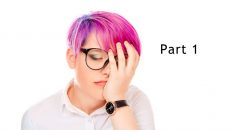By Jerry Morris, PsyD, MsPharm, MBA
MB (Marc Braman, MD, MPH):
In a broader context and in a chronic state, when they’re not in emergency, give me some concept of: are medications, 90% of effective best treatment? Are they 50%? As a general rule, where does this shake out?
JM (Jerry Morris, PsyD, MsPharm, MBA):
Yeah, this is important and it’s important for every ethical doctor of psychiatry, or psychology, or even general physicians who are collaborating with them, with their patients on psychoactive medications in particular to set the frame appropriately for those expectations. The science shows that if we get a 25% control of some of the more aberrant symptoms or negative symptoms with some of these medications we’re very fortunate. So that they aren’t going to really change the brain positively or the personality or the long range adaptation in a meaningful way without some pretty significant harmful consequences or side effects but what they can do is make a patient more available for cognitive therapies, for family therapies, for interventions that can over time mature and change the brain just like parenting does, going to school does, or any other positive guided experiences.
MB:
So, I think what I’m hearing is that medications have their place, they’re helpful, but they’re helpful more as an aid to better enable more primary treatment, or more powerful treatment.
JM:
That’s correct. For instance, we would not accept a 15% to 25% core symptom improvement as really effective treatment or treatment plan. Yet, if we don’t make the patient aware that the medications are not going to change their whole disorder or their whole life, then we actually set them up for a transference reaction where they become jaded and “anti-medications” sometimes themselves, or they become dependent and don’t do anything but the medications.
MB:
Wow! So, medications have a definite role. You’re looking at it especially from the mental health perspective in getting some of these mental health symptoms and issues under control. From a medical perspective I can speak that this is also very true in general that medications are an aid but they really don’t treat causation, and what we really want to get to is addressing what’s producing the problem to begin with as the primary best treatment, which is what lifestyle medicine is really all about.
JM:
Yes, and that’s what really some of the changes in the American healthcare system are all about, because we want to do more than brushfire healthcare and putting out fires. We actually want to put out fires and then rebuild the house and so, we want to spend the time and really, the interest to do that. One of the things I say to patients is one of the hardest things to achieve in terms of quality in the American healthcare system, and I say this to residents and interns that I teach too, is getting a doctor truly interested in you. This takes time and interest from the practitioner.
MB:
Excellent. So medications they have their place but we need to understand them more accurately as being a minor place, and aid and not the primary therapy. Dr. Morris thank you very much.
JM:
Thank you, Marc.
CDC: Too Many ADHD Kids Get Drugs First Guidelines calling for behavioral therapy as initial therapy widely ignored. Gever, John. (2016, May 3). Pediatrics, MedpageToday. Retrieved from http://www.medpagetoday.com/Pediatrics/ADHD-ADD/57671.
Antidepressant Medication Claims are ineffective and misleading. Morris, J. A., & Caccavale, J. L. (2013). In Medical Psychology Practice and Policy Perspectives, Caccavale, J. (Editor). NAPPP Books. LA, California.
Failure To Serve: A White Paper on The Use of Medications As A First line Treatment And Misuse In Behavioral Interventions. Caccavale, J., Cummings, N., Morris, J., Reinhardt, D., Rubin, H., Wiggins, J. (2010b). This report was prepared by: The National Alliance of Professional Psychology Providers, www.nappp.org.
America Fooled: The truth about antidepressants, antipsychotics, and how we’ve been deceived. Scott, T. (2006). Argo Publishing, LLC., Victoria, Texas. pp. 157-186.





